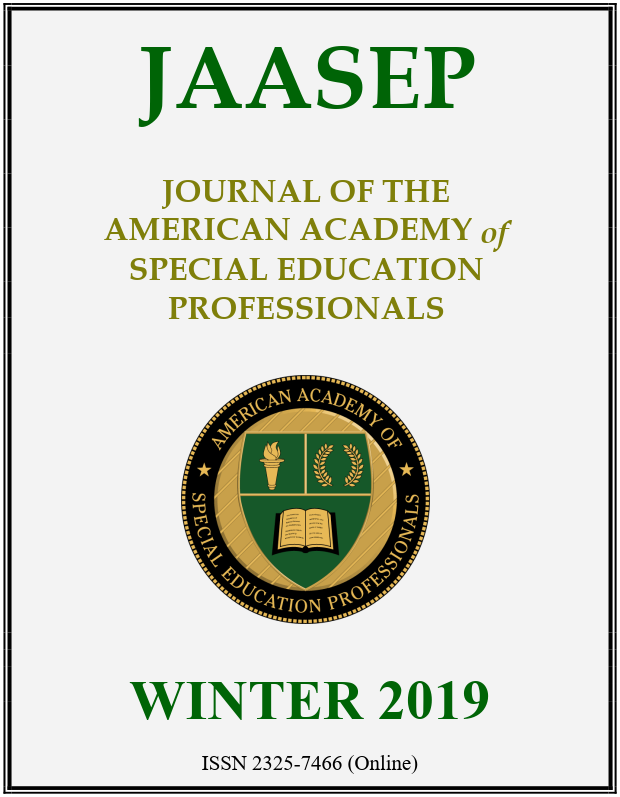Mobile Hearing Screening in a Rural Community School in Ghana
Absalan, A., Pirasteh, I., Khavidaki, G. A. D., Asemi Rad, A., Esfahani, A. A. N., & Nilforoush, M. H. (2013). A prevalence study of hearing loss among primary school children in the south east of Iran. International Journal of Otolaryngology. Retrieved October 15, 2015 from http://dx.doi.org/10.1155/2013/138935. DOI: https://doi.org/10.1155/2013/138935
Blazer, D. G., Domnitz, S., & Liverman, C. T. (Eds.). (2016). Hearing health care for adults: Priorities for improving access and affordability. Washington, D.C.: National Academies Press. DOI: https://doi.org/10.17226/23446
Boesen, M. L, & Lykke, K. (2012). Screening of vision and hearing in primary school children. Journal of Family Medicine and Primary Care, 1, 114-117. Retrieved September 7, 2015 from http://www.jfmpc.com/text.asp?2012/1/2/114/104979. DOI: https://doi.org/10.4103/2249-4863.104979
Dodd-Murphy, J., Walter Murphy, W., & Bess, F. H. (2014). Accuracy of school screenings in the identification of minimal sensorineural hearing loss. American Journal of Audiology, 23, 365–373. DOI: https://doi.org/10.1044/2014_AJA-14-0014
Gell, F. M., White, E. McC., Newell, K., Mackenzie, I., Smith, A., Thompson, S., & Hatcher, J. (1992). Practical screening priorities for hearing impairment among children in developing countries. Bulletin of the World Health Organization, 70 (5), 645-655.
Green, L. A., Fryer, G. E., Yawn, B. P., Lanier, D., & Dovey, S. M. (2001). The ecology of medical care revisited. New England Journal of Medicine, 344(26), 2021–2025. DOI: https://doi.org/10.1056/NEJM200106283442611
Levar, L., Loven, F., & Lucero, D. (2001). Hearing screening practices in Minnesota and Wisconsin public schools. Paper presented at the American Speech Language-Hearing Convention in New Orleans, Louisiana, November 2001. Magian, V. De C., Anderson, G., McKenzie, E., & Person, J. B. (1976). Mobile hearing program in central rural Manitoba. Canadian Medical Association Journal, 115, 640-644.
McPherson, B. (2008). Audiology: A developing country context. In B. McPherson, & R. Brouillette (Eds.), Audiology in developing countries (pp. 5-20). New York, New York: Nova Science Publishers.
McPherson, B., Law, M. M. S., & Wong, M. S. M. (2010). Hearing screening for school children: Comparison of low-cost, computer-based and conventional audiometry. Child: Care, Health and Development, 36(3), 323–331. DOI: https://doi.org/10.1111/j.1365-2214.2010.01079.x
National Center for Education Statistics. (2017). The condition of education: Children and youth. Retrieved from https://nces.ed.gov/programs/coe/indicator_cgg.asp.
National Institute on Deafness and Other Communication Disorders (NIDCD). (2009). Report of the NIDCD working group on accessible and affordable hearing health care for adults with mild to moderate hearing loss. Bethesda, MD: Author.
Offei, Y. N. (2015). Audiology in Ghana: A situational analysis. Paper presented at the First International Conference of the Nigerian Audiology Association, Eko Hotel and Suites, Victoria Islands, Lagos, Nigeria, July 31-August 1, 2015.
Offei, Y. N. (2005). Identification and management of individuals with hearing problems in regular classrooms. In M. Avoke (Ed.), Rudiments of special education (pp. 46 – 53). Winneba, Ghana: Special Education Books.
Offei, Y. N. (2013). The need for early identification of auditory problems among children in Ghana. African Journal of Interdisciplinary Studies, 6 (2), 23–29.
Offei, Y. N., & Acheampong, E. K. (2014). Children with communication disorders. In E. Y. Yekple, & P. Deku (Eds.), Exceptional learners (pp. 40-56). Winneba, Ghana: Salt and Light Publications.
Offei, Y. N., & Yekple, E. Y. (2014). Early intervention services in special education. In E. Y. Yekple, & P. Deku (Eds.), Exceptional learners (pp. 91-104). Winneba, Ghana: Salt and Light Publications.
Olusanya, B. O. (2015). Screening for neonatal deafness in resource-poor countries: challenges and solutions. Research and Reports in Neonatology, 5, 51-64. DOI: https://doi.org/10.2147/RRN.S61862
Olusanya, B. O., & Akinyemi, O. O. (2009). Community-based infant hearing screening in a developing country: Parental uptake of follow-up services. BioMed Central, 9, 66 doi:10.1186/1471-2458-9-66. DOI: https://doi.org/10.1186/1471-2458-9-66
Olusanya, B. (2007). Promoting effective interventions for neglected health conditions in developing countries. Disability and Rehabilitation, 29, 973-976. DOI: https://doi.org/10.1080/09638280701240748
Olusanya, B. O., Luxon, L. M., & Wirz, S. L. (2006). Maternal views on infant hearing in a developing country. International Journal of Pediatric Otorhinolaryngal, 70, 619-623. DOI: https://doi.org/10.1016/j.ijporl.2005.08.004
Olusanya, B. O., Wirz, S. L., & Luxon, L. M. (2008). Community-based infant hearing screening for early detection of permanent hearing loss in Lagos, Nigeria: A cross-sectional study. Bull World Health Organization, 86(12), 956-963. DOI: https://doi.org/10.2471/BLT.07.050005
Pacala, J. T., & Yueh, B. (2012). Hearing deficits in the older patient: “I didn't notice anything.” The Journal of the American Medical Association, 307(11), 1185–1194. DOI: https://doi.org/10.1001/jama.2012.305
Swanepoel, D. W. (2009). Early detection of infant hearing loss in South Africa. South African Medical Journal, 99(3), 158-159.
Swanepoel, D., Louw, B., & Hugo, R. (2007). A novel service delivery model for infant hearing screening in developing countries. International Journal of Audiology, 46, 321-327. DOI: https://doi.org/10.1080/14992020601188583
Downloads
Article Information
- Article Type Articles
- Submitted December 24, 2018
- Published February 15, 2019
- Issue Winter 2019
- Section Articles
